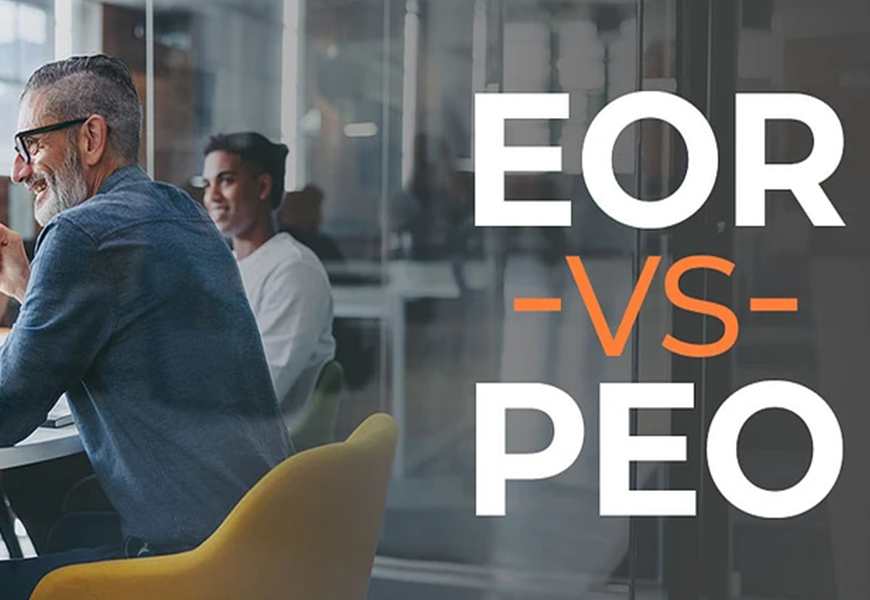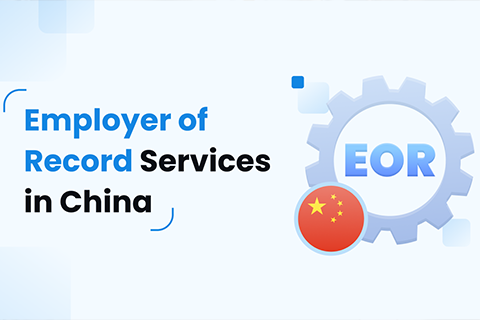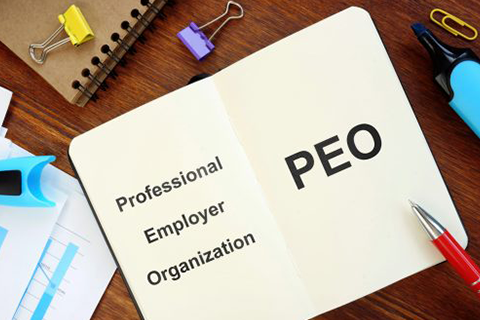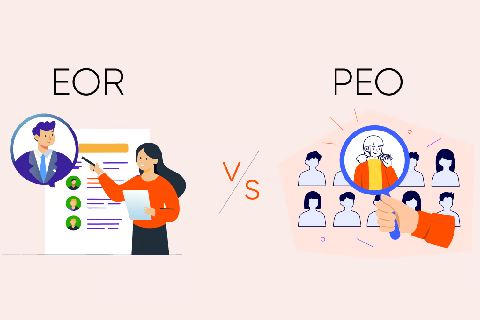For businesses seeking to effectively manage a worldwide workforce, Employer of Record (EOR) and Professional Employer Organization (PEO) services are revolutionary. The road to growth seems challenging with high competition among companies, but it is certainly not impossible with EOR and PEO.
Collaborating with an EOR or PEO can be your shortcut to success rather than being bogged down by the drawn-out setup of a wholly multinational enterprise or joint venture. This will allow you to hire employees in China and start operations in as little as 48 hours , all while making sure you comply with local laws and regulations.
What is EOR in China?
A third-party company, such as Native Teams, that acts as a company’s official employer in China is known as an Employer of Record (EOR). By managing crucial responsibilities like benefits administration, payroll, and tax compliance, the EOR frees up businesses to concentrate on the day-to-day activities of their staff rather than juggling China’s intricate labor regulations.
Companies can save time and money by working with an EOR to manage their global talent efficiently and ensure they comply with all legal requirements. Businesses can more easily succeed in the Chinese market thanks to this concept, which streamlines overseas hiring.
Pros and Cons of EOR
Pros:
- Cost Saving: Compared to establishing a local subsidiary in China, using an EOR can result in cost savings of up to 85%.
- Fast Market Entry: Companies can have a presence in China in as little as 12 hours using EOR solutions.
- Assurance of Compliance: EOR services guarantee compliance with intricate tax and labor rules in China, including the Five Insurances.
- Simplified Payroll: Businesses can reduce administrative responsibilities by managing a single monthly payroll invoice.
- Flexibility: EORs make it simpler to scale the workforce, enabling companies to modify team sizes following requirements.
- All-inclusive HR Support: EORs manage to hire and assist foreign employees with obtaining a work visa for China.
Cons
- Limited Control: Compared to running their own legal organization in China, businesses may have less authority over HR policies and choices.
- Employee Feeling of Belonging: A lot of EOR staff members work from home, which may affect how they feel about the organization.
What is PEO in China?
Under the Professional Employer Organization (PEO) employment model, Native Teams shares HR duties with Chinese companies as a co-employer. Through this cooperation, businesses can outsource payroll, benefits, and local labor law compliance while maintaining control over the day-to- day work of their employees.
Businesses can lower HR expenses and improve employee satisfaction while adhering to regulatory obligations by using a PEO. This methodology aids businesses in effectively navigating the challenges of recruiting and overseeing talent in China’s heterogeneous labor market.
Pros and Cons of PEO
Pros
- Cost Savings: HR expenses can be greatly reduced by working with a PEO. The yearly charge is usually between $30,000 and $45,000 for a business with about 30 employees, which is far cheaper than hiring a full-time HR director.
- Legal Support: By companies guiding through complicated labor regulations, PEOs lower legal risks and guarantee compliance.
- Workers’ Compensation Management: They oversee workers’ compensation plans, ensuring that all aspects are appropriately addressed.
- Better Worker Experience: PEOs provide alluring benefit plans that boost retention and employee happiness.
- People Acquisition: They help companies create effective teams by locating and employing outstanding people.
Cons
- Communication Issues: When working with a third party, there may be communication lags that cause things to go more slowly.
- Loss of Control: When working with a PEO, some companies may feel that they are ceding too much control over HR-related tasks.
- Dependency on Service Quality: The responsiveness and service quality of the provider are critical to the success of a PEO collaboration, thus careful selection is essential.
EOR vs. PEO: Highlighting the Key Differences
Businesses aiming to grow internationally must comprehend the distinctions between Employer of Record (EOR) and Professional Employer Organization (PEO) services. The main differences between EOR and PEO are:
1. Legal Employment
EOR: The EOR handles all compliance with regional labor laws in the nation where your employees are based, acting as their legal employer.
PEO: Under a PEO model, your company and the PEO share employer obligations, forming a co-employment relationship. The PEO does not, however, take on the role of a legitimate employer.
2. Employment Contracts
EOR: EORs ensure that all legalities are handled by providing employment contracts that are compatible with local laws.
PEO: Generally speaking, PEOs don’t offer local contracts; your business is still in charge of that.
3. Accountability for Benefits
EOR: EORs oversee required benefits, such as insurance and pensions, for staff members while making sure local laws are followed.
PEO: Although PEOs can assist with benefits, not all jurisdictions need them to be provided.
4. HR Duties
EOR: By handling holidays, vacation time, expense reimbursements, and severity issues directly, EORs relieve your HR staff of these responsibilities.
PEO: Although PEOs might offer some HR assistance, your business is usually ultimately in charge of handling these matters.
5. Expense and Setup
EOR: Without having to set up a local corporation, EORs are perfect for companies wishing to quickly hire people in new areas. This might reduce the time and expenses involved in starting a firm.
PEO: Businesses that are incorporating locally and require continuous HR support as part of their local operations are better suited for PEOs.
How to Choose between EOR and PEO?
The demands, goals, and market presence of your business should all be taken into consideration when choosing between an EOR and a PEO. Here is a brief guide to assist you in making a decision:
Select an EOR if
- You are expanding into new nations in which you do not yet have a legal company.
- Hiring contractors or remote workers in several international markets is your goal.
- You require a solution that ensures adherence to regional labor rules in other countries.
- You would rather not deal with the costs and hassles of establishing an overseas subsidiary.
Select a PEO if
- The country in which you want to hire already has a legal organization for your firm.
- Payroll, benefits administration, and tax management are among the HR duties you wish to outsource.
- Enhancing HR procedures for domestic operations or in regions where you currently operate is your main goal.
- You are looking for ways to simplify staff administration at a reasonable cost without changing your current legal structure.
Conclusion
The development and operational effectiveness of your organization can be greatly impacted by your choice of employment model, whether it be PEO or EOR, in the fast-paced world of business. You may make an informed decision that fits your expansion objectives and compliance requirements by being aware of their distinct advantages. Your company will be prepared to succeed in both domestic and foreign markets with the correct assistance.






